The Real Reason Parenting is Hard and How to Make It Easier
Parenting can feel ridiculously hard. So hard that it leads to pure mental and physical exhaustion.
Being a parent can also make you act in a way that is not true to your core character. Worry and fear are two of many emotions often experienced. And yet, parenting is also one of the most amazing gifts.
This post contains affiliate links, see disclosure policy for details.

Kids enter the world without a manual. They have their own unique personality that may be complementary to or total opposite of yours.
You may have one child who is easy to parent and another who makes you want to hit your head against the wall. Although I wouldn’t suggest you do this, it is okay to feel like that. Or like the intro of one of my favorite podcasts, Family Looking Up, says, you may feel like you want to jump off the washing machine on occasion.
Over the past few years, I have had a major mind-shift in what my job as a parent is. Then I realized because of this mind shift, parenting didn’t feel as hard anymore.
It’s as if I could finally exhale.
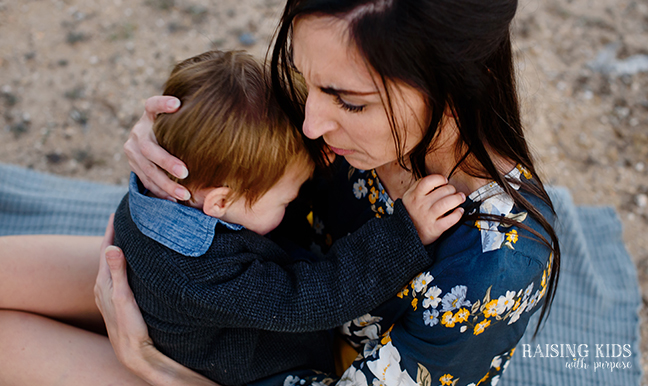
Table of Contents
The Reasons Parenting is Hard
Parenting is hard-wired.
Five years ago, researchers discovered that parenting behaviors are triggered through neurons in the hypothalamus. This is a tiny part of the brain where hormones are released. They found that parenting behavior is controlled by galanin neuropeptides.
Say what?
These neurons are conveyed in many brain functions such as responding to harm, sleep-wake cycles, understanding, eating, mood and blood pressure regulation, and cell growth.
When we become parents, our brains change.
There is no immediate benefit to providing and caring for a completely dependent baby. However, we instinctively develop parental behaviors that come from genetic programming. Our feeling of responsibility increases as we have a new life to care for.
On a side note, researchers think the reason moms experience postpartum depression is because something goes wrong in the development of these neuronal circuits.
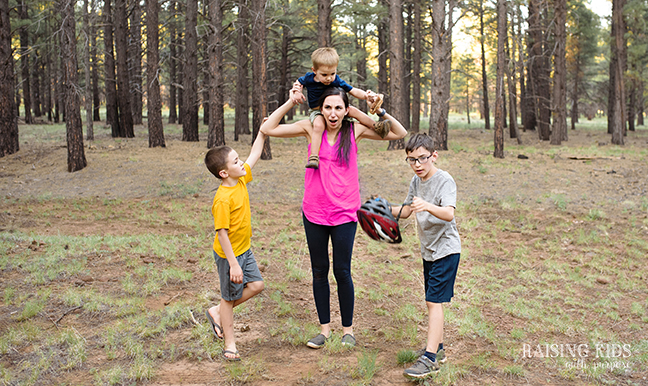
If I surveyed 100 people on what parts of parenthood are hard, I’m sure I’d get thousands of reasons. As parents, we are pulled in many directions. The tears, tantrums, and sibling fights are what I call surface-level challenges.
At the moment, all the noise can make our heads feel like they’re going to explode. Or the constantly correcting behavior and making sure our kids are making good choices can drain a person.
Do you ever feel like it’s just too much?
The REAL Reasons that Parenting is Hard
Yes, the running around, getting slapped in the face by a toddler or peed on by a baby, and being responsible all make parenting feel hard. But, there are some more underlying reasons I think are at play.
The Need For Autonomy
We want our autonomy and so do our children!
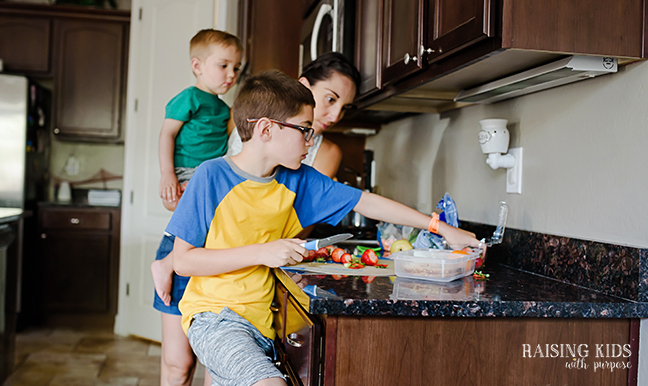
Ever you ever heard a toddler yell, “Me do it!” while trying to do a small task for him or her?
That is a plea for autonomy and control over his or her own life.
The self-determination theory presents three psychological needs that all humans are born with: autonomy, competence, and relatedness. We need these three things to be self-motivated.
I don’t know about you, but I prefer my child to be self-sufficient and independent of me. I don’t want to rely on punishments, rewards, and other extrinsic motivators to get them to do what I want.
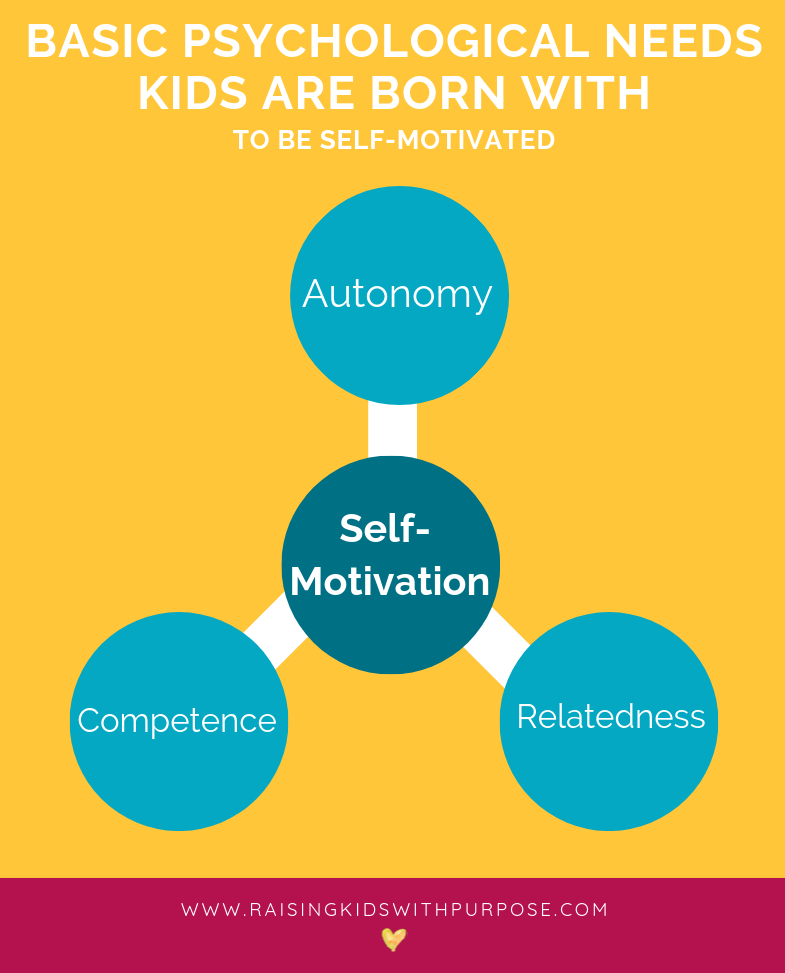
A parent will often butt heads with a child because he or she is inadvertently taking away that basic need for autonomy.
Read More: 4 Easy Steps for Teaching Life Skills to Kids
A Different Timeline
Why is it that when it’s time to leave, kids often think it’s time to take their clothes off or start an art project? Here I am feeling like my time disappears into oblivion every day and my kids are ready to be the next Picasso just as we are heading out the door.
I found some very fascinating research to explain why kids aren’t so pressured with time!
The perception of time does actually speed up as we grow older. The reason is found with executive functions found in the frontal lobe. Working memory, attention, and executive function are rapidly developing all throughout childhood.
The neural transmission is actually physically slower in kids!
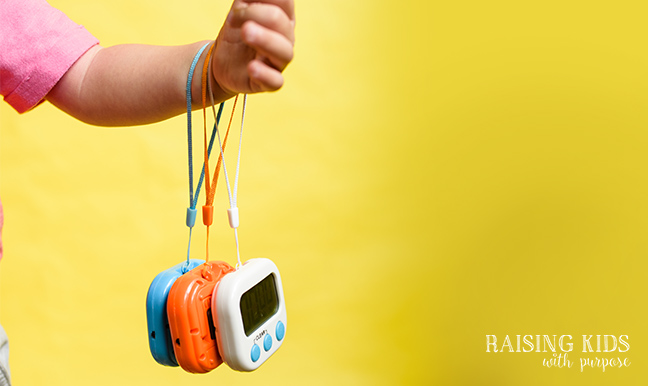
The frontal lobe finishes developing into adulthood around the age of 24-25. By then, time is perceived to go by a lot faster and it is encoded more accurately.
When we are trying to rush out of the house or feel like our five minutes is going to be gone in a flash, our kids perceive that time to be a lot longer.
Failure is Hard to Watch
No one likes to watch their kid fail. For some, it can cause anxiety and tears. It’s completely normal to want your child to have everything and get through life without being scathed.
However, this doesn’t teach them anything because life isn’t perfect. There will be challenges your child needs to overcome. The more they walk through these times to learn from them, the more resilient they will most likely become.
Underdeveloped Brain
Lastly, parents get frustrated with kids and their behaviors a lot of times because they want a child to do something he or she doesn’t even have the developmental ability to do. It’s often frustrating when a child lacks self-regulation when we think they are in control of themselves.
It’s very easy to be understanding when a toddler chucks a toy across the room or screams in your face, but way harder to have a gentle response when a kid over five years old does the same thing.
Yes, these skills increase as a child gets older and the neural pathways are created, but kids can be further behind than parents realize. Many times the culprit of unwanted behaviors is found in the underdevelopment of executive functions. There’s that phrase again!
My favorite is to hear my husband ask, “Why did you just do that?” He’s often answered with blank stares looking back at him. (I’ve learned to not even ask! Ha!) Because developmentally, our child really has NO CLUE why he just ran by his brother and smacked him on the back of the head. At that moment, his prefrontal cortex went offline completely out of his control.
Again, the thinker part of the brain doesn’t fully develop until someone is in his or her mid-twenties!
We also forget to look specifically at the child. With my neurodiverse kids, one is developmentally a few years ahead in academics and empathy but a few years behind in organizational and time management skills.
Our mindset of, “My child is nine years old, he should be able to do ______” can make parenting feel so hard because we have false expectations of what that child is capable of doing based on his or her brain development.

The 4 Mindsets That Can Make Parenting Easier
Yes, my responsibility is still the same. I am responsible for teaching and guide my child to make good choices and be a kind, respectful, independent, competent adult.
After taking a step back, ahem, relinquishing control and shifting the way I viewed parenting, things started to feel more joyful, easier, and not so draining.
Here are the four mindsets that make parenting a little easier for me:
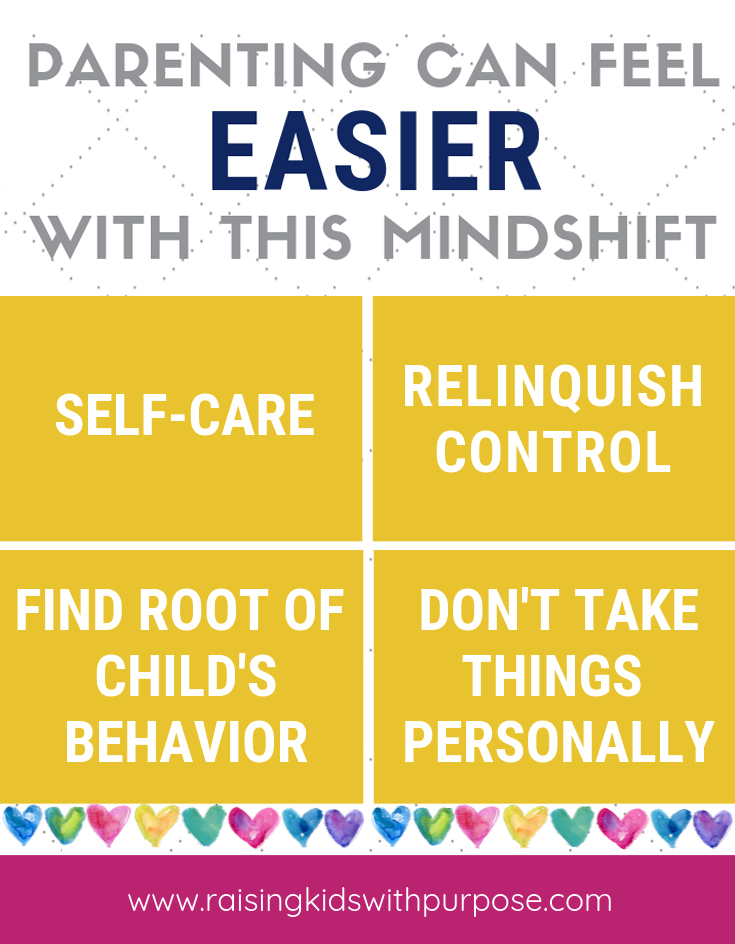
1. It’s Okay to Take Care of MYSELF First
This one is big. If we can’t handle our own emotions or feel like we are running on empty, life, in general, is going to feel very challenging.
I know self-care is a hot topic right now, but the type of self-care I think is vitally important to make parenting easier is more inwardly focused than a pedicure or massage. Even though, those can be helpful, too.
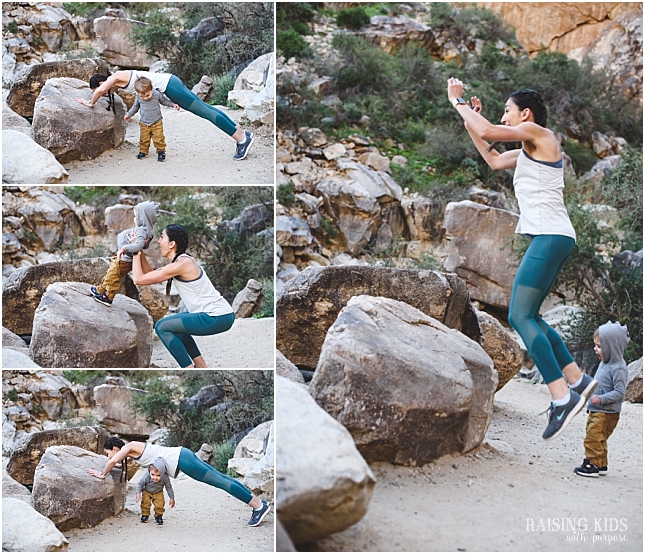
I came up with an acronym, MYSELF which is adapted from Julie Morgenstern’s Time to Parent. It stands for:
So anytime you are feeling like parenting is extra hard, ask, “Am I taking care of MYSELF?”
I find this so important that I created this Self-Care Ebook just for you!
Read Next: How to Take Care of MYSELF With Self-Care
One last thing I wanted to mention was what I constantly talk about so I apologize if it seems like I’m preaching. It’s to…
Stop. Pray. Breathe.
Instead of constantly reacting to my kids, I now work on responding.
Sometimes this comes easy and other times, it’s imperative that I stop before heading into battle.
Another great tip is to either write down or take a mental note of how your body feels when your kids are being defiant or are displaying big feelings.
For me, I can feel it in my chest and hands. As soon as I acknowledge that physical sensation, I have to reconnect with my mind to pause before I say a single word. Because I’ve done this so much, it has become more automatic.
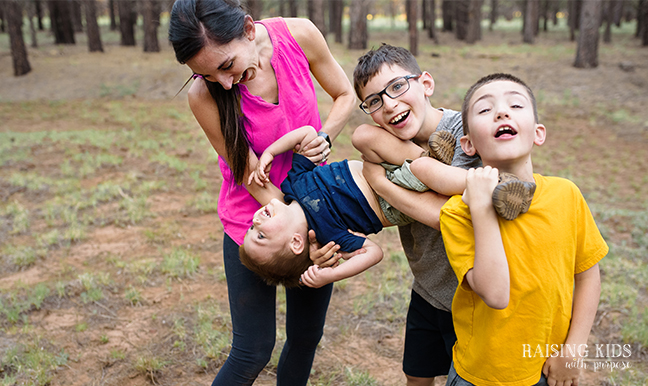
2. Realize I’m NOT in CONTROL
As parents, we are not in control of our kids.
It may feel like we need to be or even should be, but the truth is they are in control of themselves. Instead of viewing our job as a parent as a manager, it’s more effective if we view ourselves as their consultant or even a coach.
There are four causes of stress. An easy way to remember is using the acronym, N.U.T.S.
- Novelty – Doing something new
- Unpredictability – Having an experience you didn’t know was going to happen
- Threat to the Ego – Your competence is questioned
- Sense of No Control – Having a feeling of not being in control of oneself
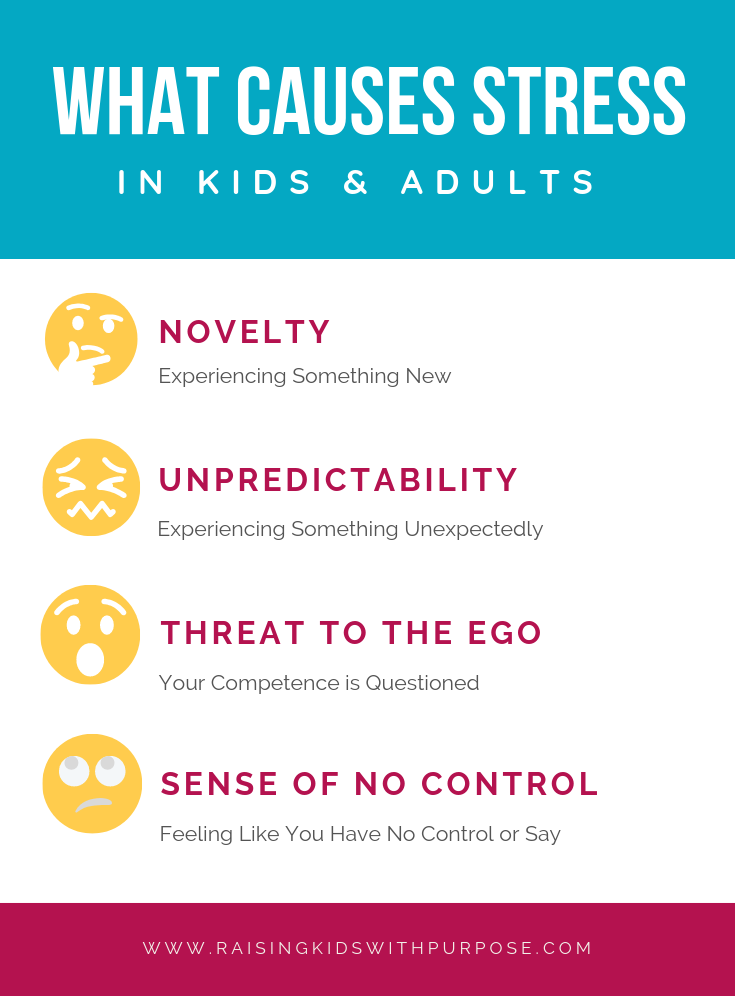
There are three types of stress, positive, tolerable, and toxic. In order for kids to manage their stress so it doesn’t reach the toxic level, they need an adult they can trust to help them recover and have a sense of control over their lives.
Honestly, to know that I don’t have control over every behavior or decision my child makes has taken a huge weight off my chest.
Instead of controlling what our kids do or making all the big decisions for them, it helps our kids far more when we set limits, and ground rules and help our kids problem-solve.
3. Look for the ROOT of My Kids’ Behaviors
Behavior. That’s such an interesting word.
Before I developed an understanding of how a child’s brain forms, the reasons for their actions, and what their basic human needs are, I saw behavior as either good or bad. And “bad behavior needed to be corrected because kids must obey their parents.”
Now, I view behavior as communication.
If your son looks at you after you just told him not to jump on the couch and he does it anyway, he is communicating something to you. When your daughter is crying and flailing on the floor and cannot get control of her emotions, she is trying to communicate something. If your son is refusing to get out of the car to go to school, he is communicating something to you.
The iceberg model visually explains how behavior works. What we see on the surface is usually only 10% of what’s really going on underneath the surface.
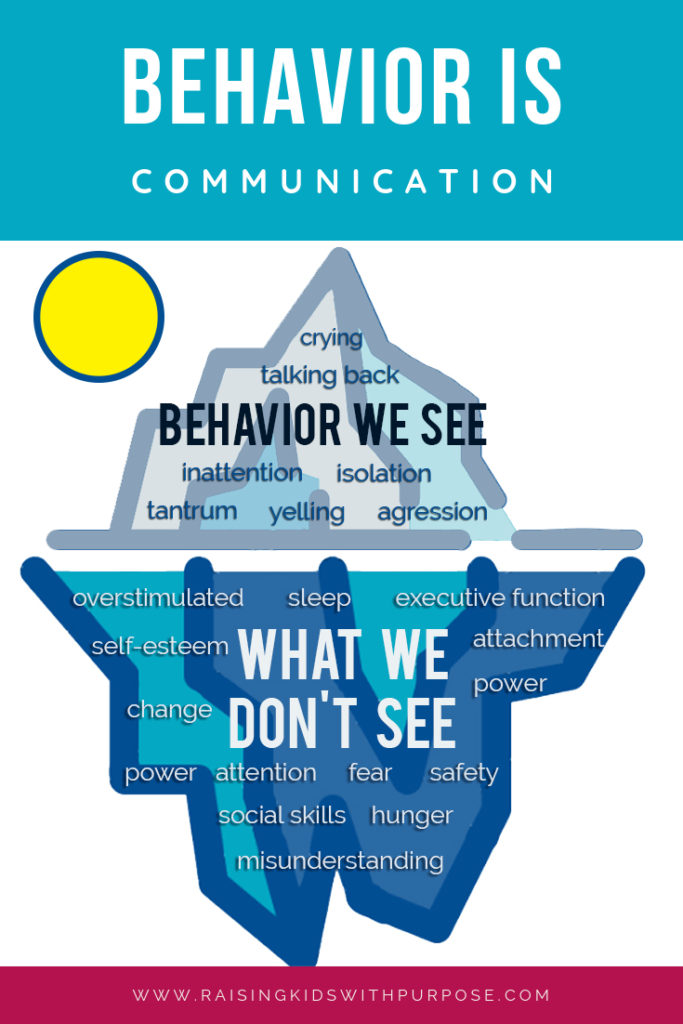
Instead of constantly thinking, “My kids don’t listen, they need to stop,” I switched my thinking to “Why are they acting this way and how can I help?”
One other thing I did was adopt the mantra, “Kids Do Well If They Can” by Dr. Ross Greene. Can I tell you how many times this has gotten me through some really tough emotional meltdowns with my son? A lot!
4. Stop Taking My Kids’ Actions and Words Personally
I end with this one because it’s huge.
We accidentally went to the Science Center on a sponsored day. It was free to get in so that meant every person and their mom (and dad and sister and grandma and great-grandma and Uncle Bob and Aunt Marge) were there!
One of my kids has a sensitive sensory system. After all the noise, people brushing past him and the added lights and visual stimulation, his responses to our directions were… anything but kind.
His words seemed as if they were a personal attack on us which could’ve easily made my husband and I react defensively.
The root of the disrespectful talk was overstimulation.
Speaking in a loud and rude manner was the only way my son was able to express how he was feeling at that moment. Although irritated, we restrained from yelling back. Once my son got in the quiet car and ate a protein-packed lunch, the disrespectful talk dissipated.
Oftentimes, we lose our cool because we get offended.
Has your child ever said something to you that made you think, “Whoah, dude, back up the train! You realize I’m in charge, right? How dare you speak to me like that!” And you match the lashing out talk, rude behavior, or yelling?
When we do this, we are modeling that unwanted behavior. We also aren’t attuning to what their needs are because remember, behavior is communication.
Getting offended or taking our kids’ behavior personally isn’t helpful.
Instead, focus on getting to the root of the behavior and connect in a way that is most helpful to your child. THEN, once he or she is calm and connected to the Thinker brain, you can take that time to talk about appropriate ways to speak if it’s even necessary.
Don’t Poke The Lizard
Another thing that happens if we take our kids’ behaviors and words personally is that we start using a whole lot of words and do what Dr. Daniel Siegel calls, “poke the lizard.”
If your daughter is angry, that means her “reptilian” or brain stem and the limbic region is activated. When kids are in this state, they are unable to think rationally. The more you talk back or try to correct, the more you poke that lizard.
And you know what happens when you poke a lizard! Ha!
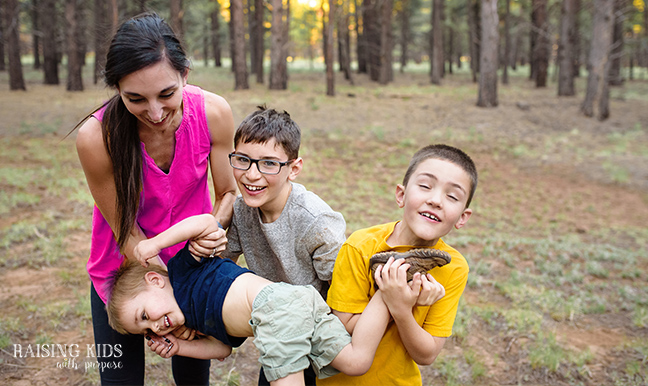
Parenting Doesn’t Have to Be So Hard
I’m really hoping what has helped me will help you find joy in parenthood. Because once we realize that we don’t need to control our kids and that they are acting like crazy animals for a reason that is beyond what we can see, our own nervous systems remain calm. And when this happens, we can have rational thought about what’s really going on.
Self-control is a beautiful thing.
There are still times when I can feel my heart racing and fists clenching, but because I’m mindful about my body, I can recenter and focus on connection.
Let me know if any of these resonate with you and where you find parenting to be the most challenging. Comment below!


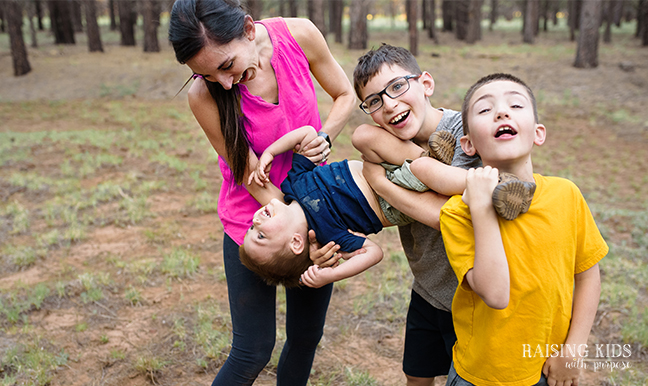
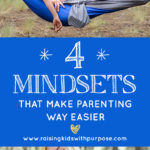

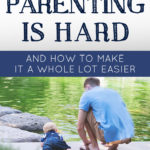






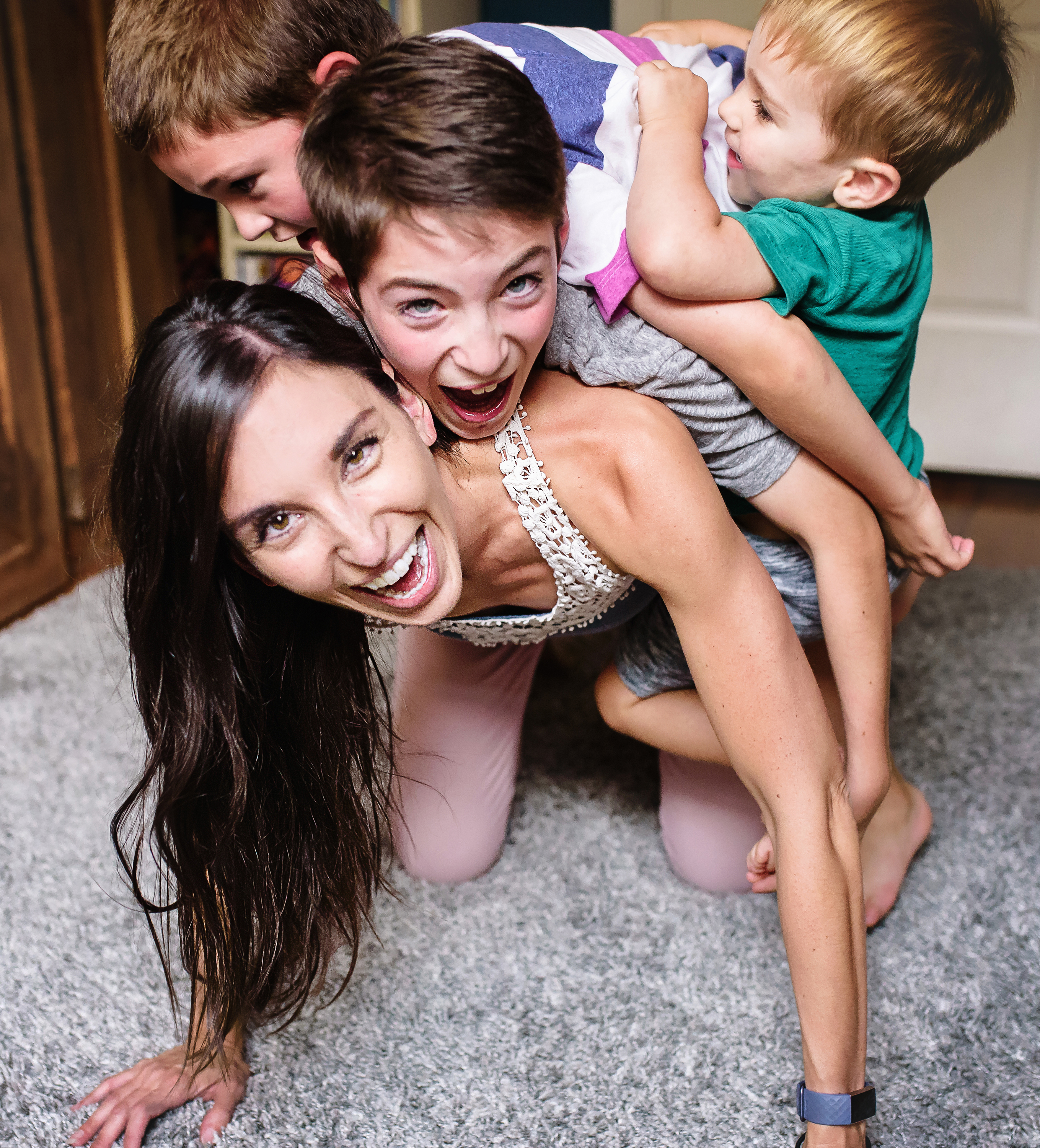
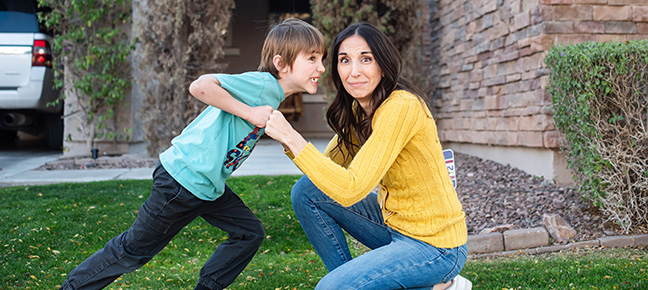

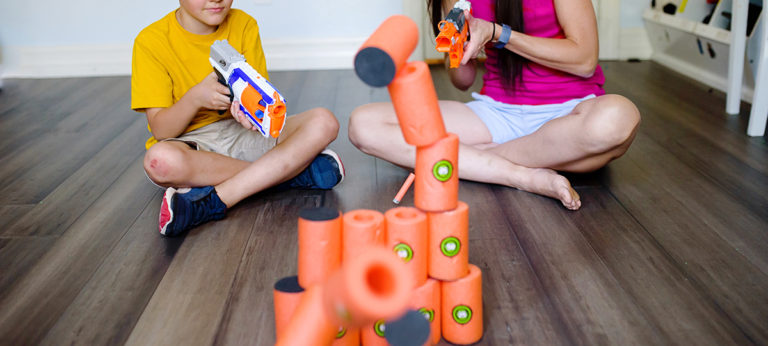
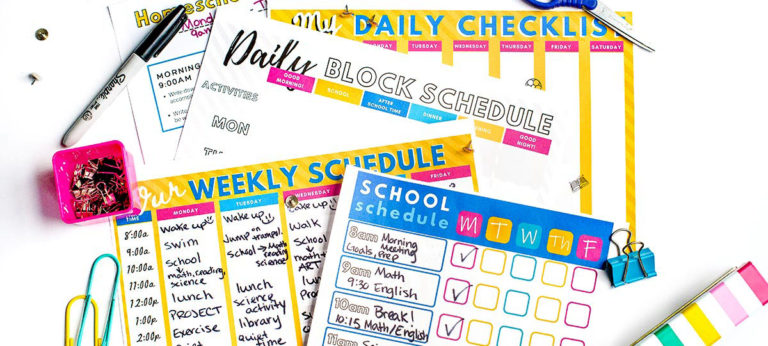


This is such a thorough and well-researched post! I love that you include tips on how to improve your mindset as a parent! I am all about learning how to change how we react to stressors or challenges in life. Self-care is so important for all parents and yet so frequently neglected!
Thank you so much! This one actually took me a lot less time because I didn’t have to do as much research. And yes, I often look around in public at how stressed out parents are and if only they would improve their mindsets, they could be a lot happier! *And their kids would be too 😉 Thank you so much for your insight!
Whew, what a read! So much to think about, and so much I agree with. It’s hard not to take things that happen in parenting personally, but you’re exactly right. I get to practice a lot of this with my 3yo on the regular!
Thank you! It really is hard not to take things personally but if we understand where those words or emotions are coming from, it’s easy to brush it off. Then when they’re in a teachable state, then we can go over what words are better to use and how that could’ve hurt your feelings.
What a great article! Thank you for such amazing tips! I for sure need to try some of these with my 3-year-old and 1 year old.
Thank you! I’m happy they are helping!!
This is awesome information! I love posts like this that shows scientific reasons behind normal, every-day struggles! I definitely love autonomy in my life, and I think it just adds more stress! Thank you so much for sharing!
You’re very welcome! I’m a little bit of a research junkie but if I can figure out the WHY and reasons, it takes most of the stress off for sure.
Great article, very insightful thank you
Thank you!
This was a really well-written and researched post! I especially loved your acronyms and diagrams. You really went above and beyond to make your information easily digestible!
Thank you so much! I’m all about simplifying as best as I can so we can really enjoy parenthood!!! Thank you for your encouragement!
I truly enjoyed reading this. Find it very interesting, especially the fact about hypothalamus. Thanks for sharing ❤️
The more I learn about the brain the more it fascinates me. I had NO IDEA parenting that could actually be found in a specific part of the brain or that hormones were specifically released. So cool!
Love your tips! This all makes a lot of sense. Parenting is definitely hard, and there aren’t always clear answers to things. I feel like I am always navigating new territory.
Thank you! Every child is so unique and our personality may work or not work with each of kiddos. I think if we have the right mindset though, it doesn’t have to feel as hard.